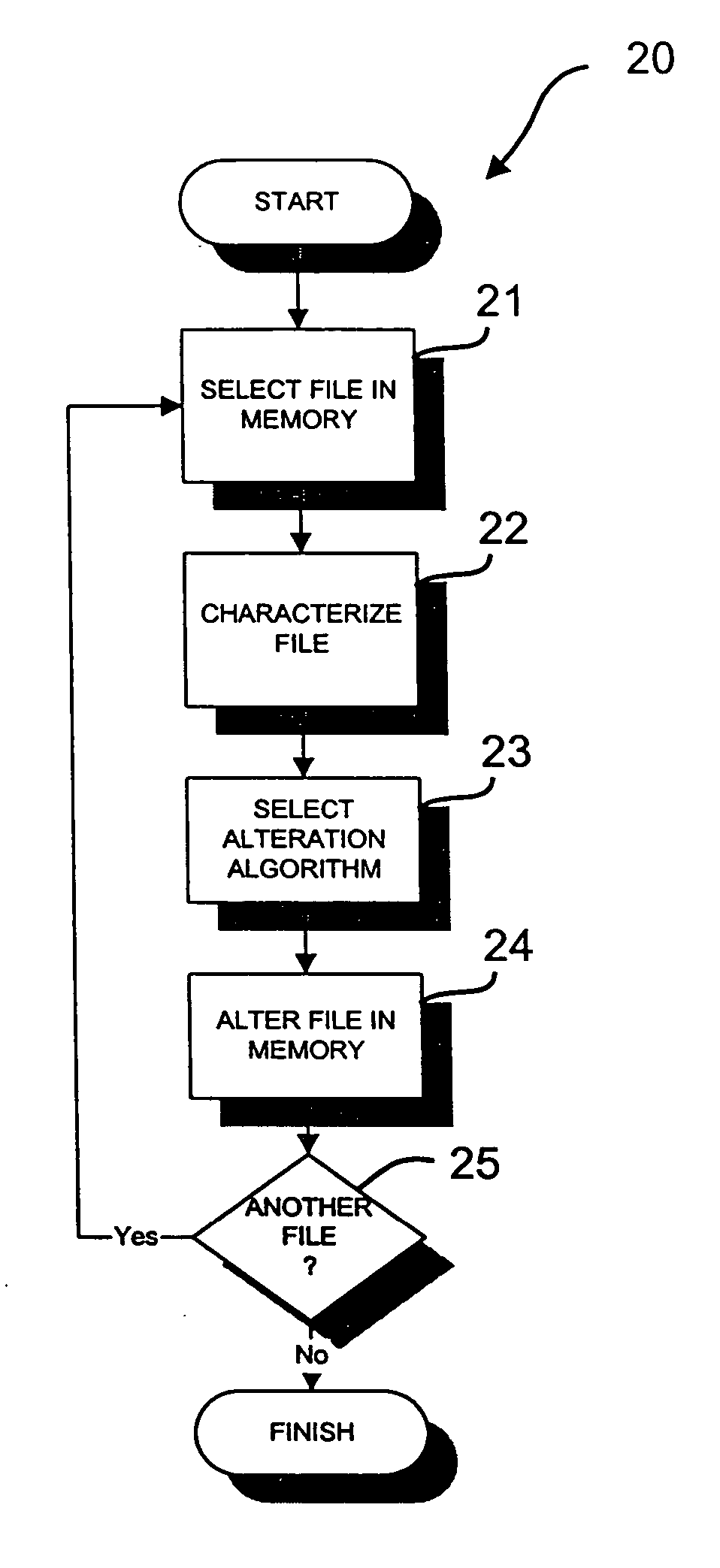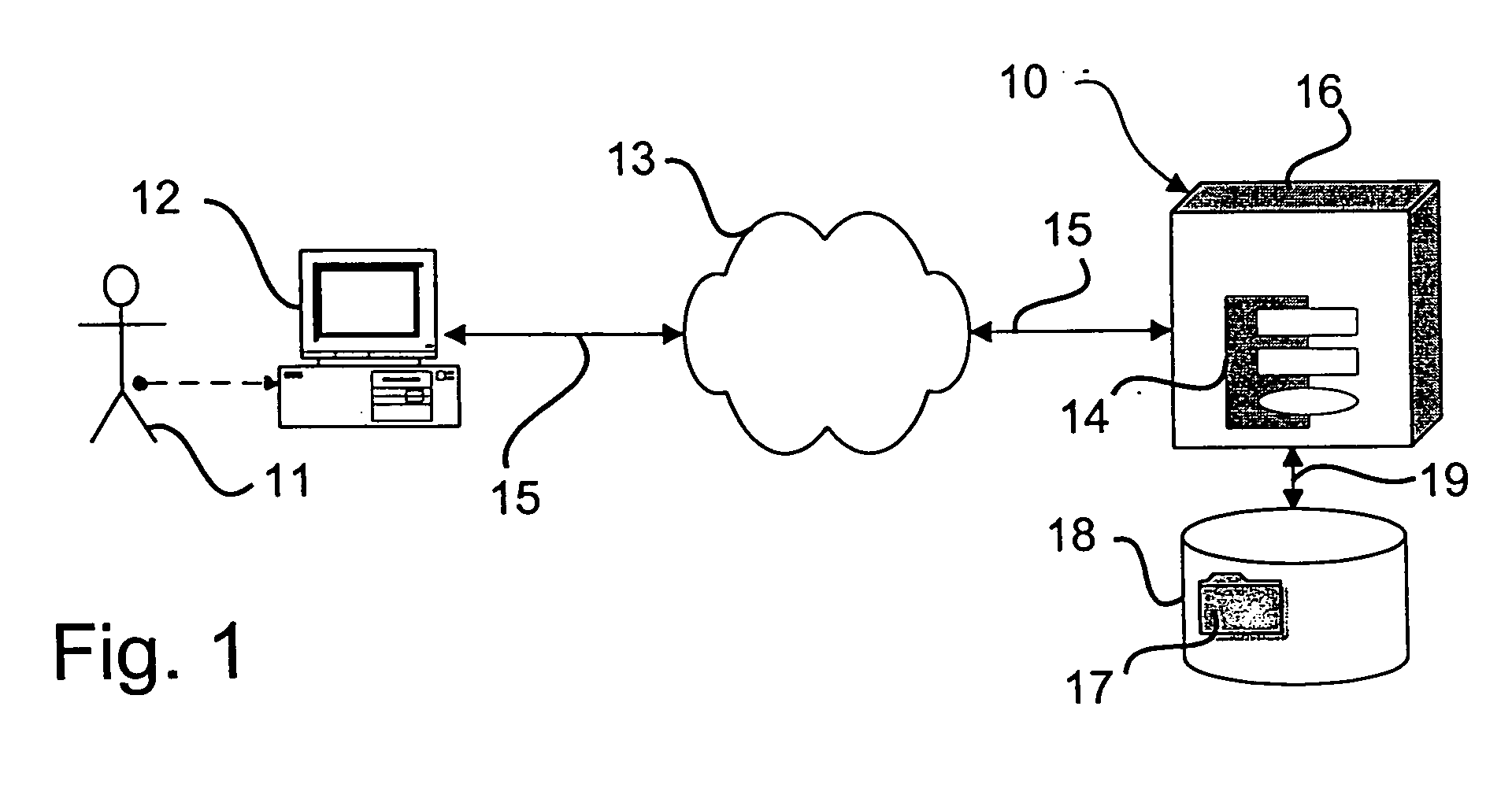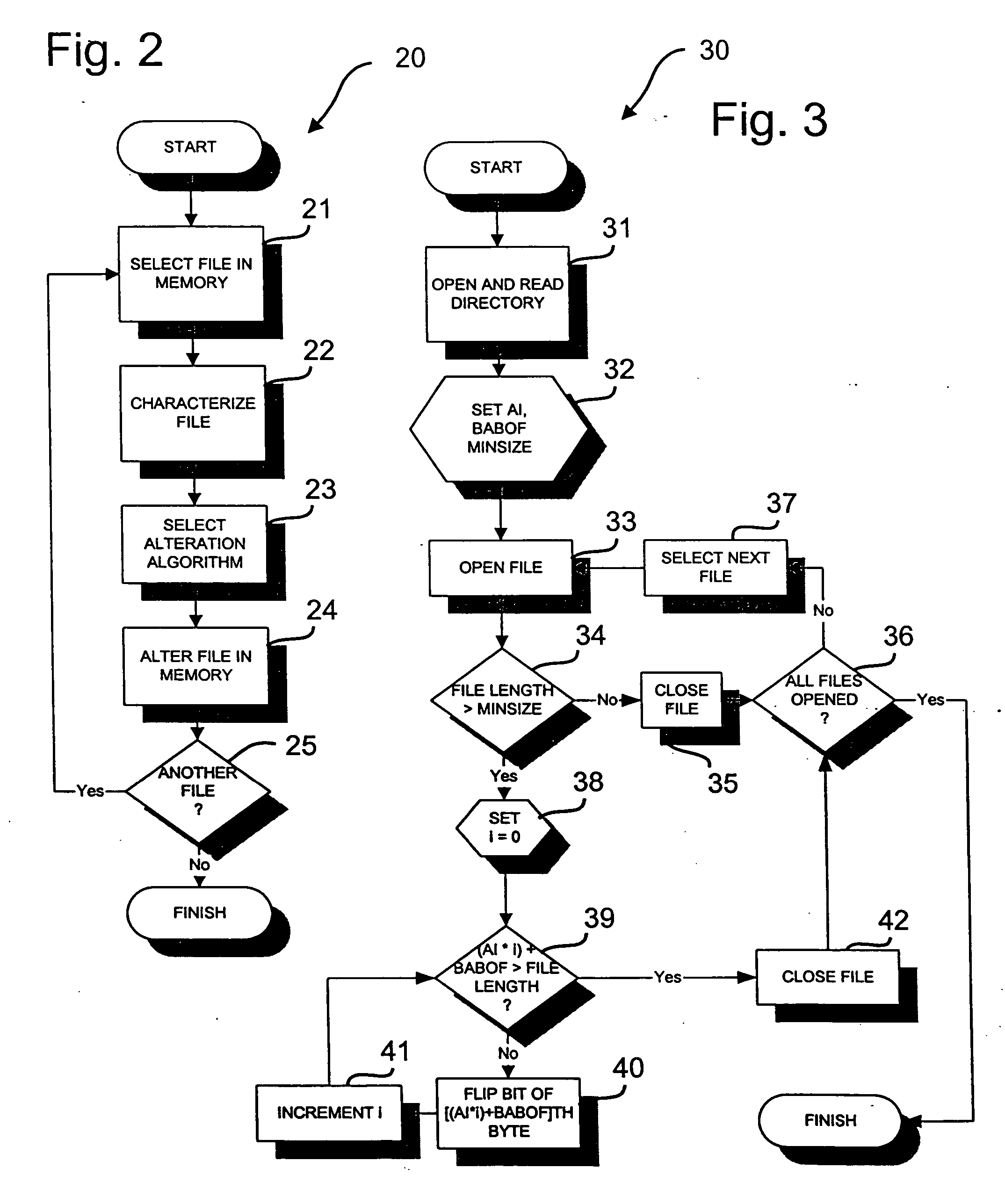Computer network storage environment hostile to fault-intolerant electronic file types
a computer network and file type technology, applied in the field of server operation methods and systems, can solve the problems of destructive alteration of undesirable file types that is difficult or impossible to reverse, and the corrupted executable files cannot be executed, etc., to achieve the effect of facilitating future copying of files, discouraging deceptive naming practices, and preventing the disguising of undesirable file types
- Summary
- Abstract
- Description
- Claims
- Application Information
AI Technical Summary
Benefits of technology
Problems solved by technology
Method used
Image
Examples
Embodiment Construction
[0015] The present invention provides a method and system operable at an application or higher network level for discouraging inappropriate use of network resources. In the detailed description that follows, like element numerals are used to describe like elements shown in one or more of the figures.
[0016] Referring to FIG. 1, system 10 comprises a server 16 and an application 14 executing on the server. Server 16 is typically a general purpose computer configured for serving information to multiple users across a network, but may comprise any high-level computing device capable of performing the method described herein. Application 14 comprises a program of instructions for performing the method described herein, and may additionally comprise instructions for performing other server functions as known in the art.
[0017] Server 16 is connected to network 13 by communication link 15 and to a memory 18 containing at least one file 17. Memory 18 is any device, such as a hard drive or ...
PUM
 Login to View More
Login to View More Abstract
Description
Claims
Application Information
 Login to View More
Login to View More - R&D
- Intellectual Property
- Life Sciences
- Materials
- Tech Scout
- Unparalleled Data Quality
- Higher Quality Content
- 60% Fewer Hallucinations
Browse by: Latest US Patents, China's latest patents, Technical Efficacy Thesaurus, Application Domain, Technology Topic, Popular Technical Reports.
© 2025 PatSnap. All rights reserved.Legal|Privacy policy|Modern Slavery Act Transparency Statement|Sitemap|About US| Contact US: help@patsnap.com



